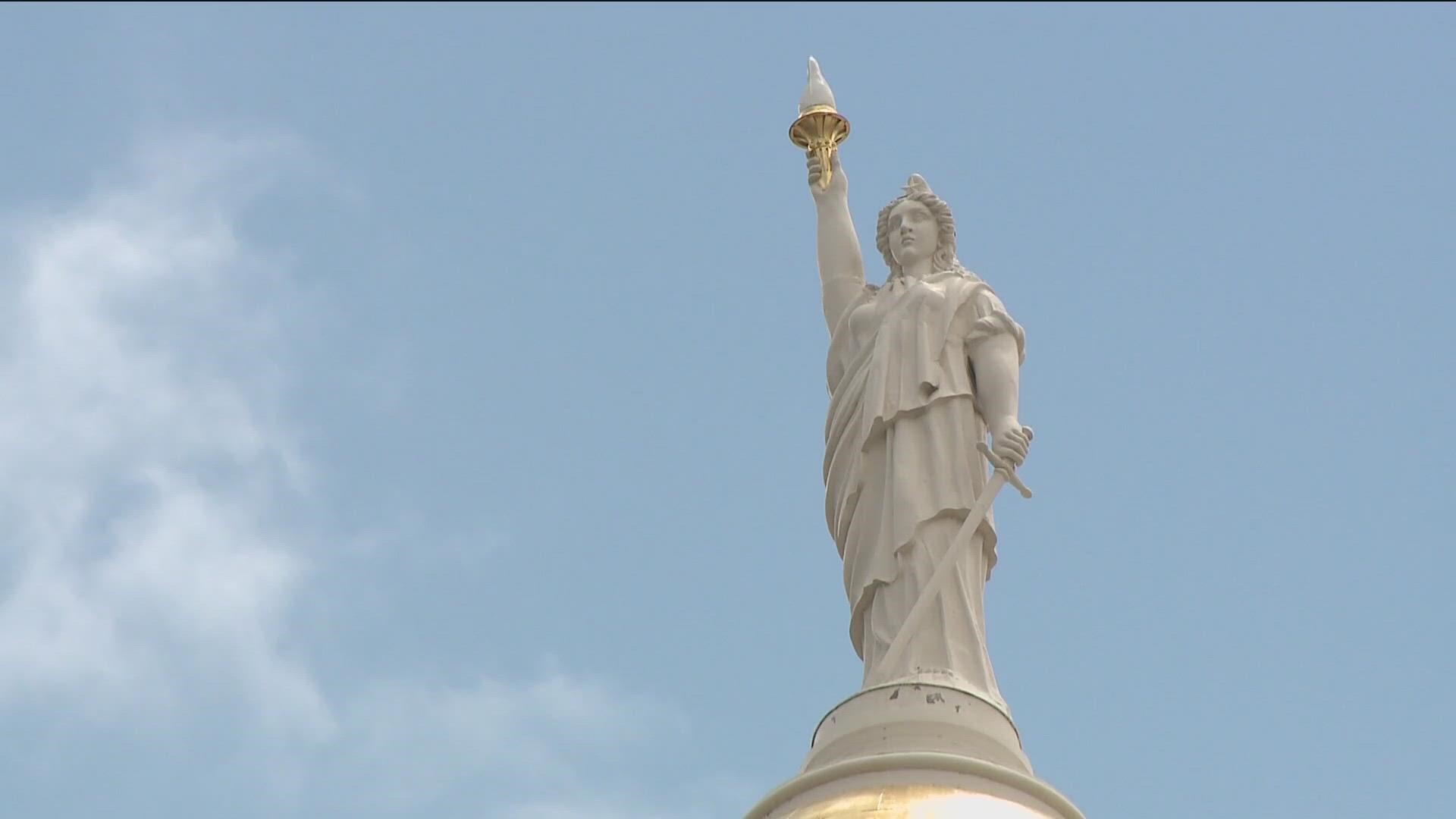ATLANTA — Diallo Gibson opened his restaurant, Taste, four years ago in the West End of Atlanta. It doesn't sit far from a cluster of historically Black colleges and universities, or HBCUs.
"You got the beltline right down the street, Tyler Perry Studios right down the street, so everybody knew or had to know property values had to go up," Gibson said. “Like any other business, it takes a little while, but it grows. We’re doing pretty good.”
Dr. George French, president of Clark Atlanta University, said he would like to see more development on and around campus. He credited HBCUs with helping to create a prominent Black middle class and sees promise in efforts to promote growth in the area.
"HBCUs, from their inception, we've served as anchor institutions within our communities," French said. "But now we have areas around campus that are blighted. We have businesses that have been shuttered and buildings sitting dormant."
Georgia State Senator Sonya Halpern (D-Fulton County) drew up a bipartisan bill, SB235, that would create a planning commission. That commission would then design what's called HBCU economic prosperity planning districts. She said it would be a first-of-its-kind measure that would center solely around HBCU's and the communities they serve.
“That becomes a vehicle by which we can draw down dollars, whether that’s federal, state, private or philanthropic dollars toward community development, economic development and workforce development around each of our clusters of HBCUs," Halpern said.
"It’s really going to be a tool that helps us catalyze the growth and sustainability of HBCUs themselves, centering them in that university-driven economic development or place-based economic development.”
In Georgia, there are 10 HBCUs, five of which are in Metro Atlanta. Five prosperity planning districts would help maximize federal and state funds for the schools located in each area, and those schools typically rely on grants and private donations to operate.
The districts would focus on building upgrades, French said, as well as bringing affordable housing, small businesses and grocery options to historically underfunded communities. The hope is that development will also create revenue streams for the schools if the bill passes.
"We consistently have some infrastructure needs. We've got some old facilities that definitely need upgrading," Halpern said. "We need more capacity and effectiveness at our HBCUs. Both of my parents grew up in Mississippi, on farms in Jim Crow Mississippi, and their entire lives changed because they found a way to HBCUs. That then meant the trajectory of my life and sister’s life were completely different than what it would’ve been otherwise.”
Halpern said the bill is in the process of being put on the legislative calendar by Crossover Day Monday. The measure previously made it out of the economic development committee. If the bill does not make it out of the state senate, Halpern said she would continue to push for progress on this issue.
Meantime, Gibson hopes the bill passes and brings more business to his restaurant and the area.
"Whenever we do anything that's going to generate business in the neighborhood or bring different clientele or businesses, it helps everybody – especially the ones that are already here," Gibson said. “You have to adapt, it’s going to happen. So you have to adapt to it."

